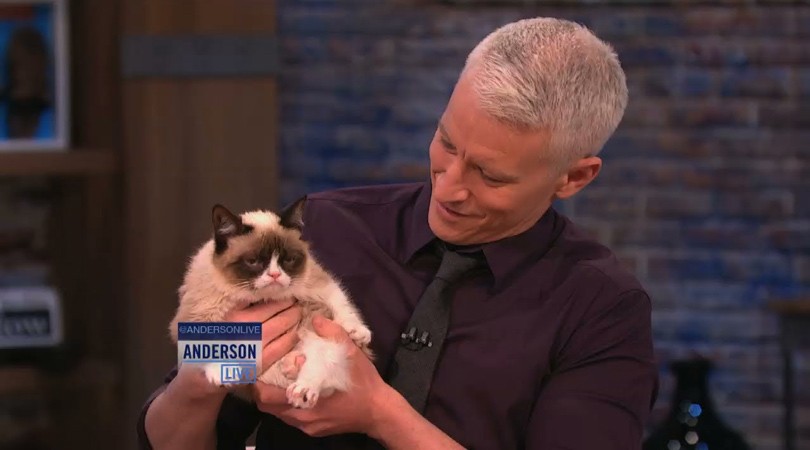You Can't Be Anderson Cooper, But You Can Conduct Candidate Interviews Like Him
Like recruiters, journalists spend a lot of time interviewing people. These interviews are for articles and blog posts and, like your candidates, interviewees can vary considerably in quality. For instance, sources might supply the information needed for a piece, but not necessarily great quotes that will take it to the next level.
It’s a similar story with potential hires. Some might look impressive on paper, but face-to-face is a whole other not-so-impressive story. Like journalists, you often have to work to get the information you need. That doesn't mean you have to be an Anderson Cooper or Diane Sawyer, but there are a few simple, journalistic-style things you can do to spark a great conversation with your candidate.
1. Identify your icebreaker.
When you Google or look them up on LinkedIn, try and pinpoint an interesting tidbit and use it as the catalyst for your conversation. The first question sets the tone for the interview so make it a good one – dare to be fun.
Often, the best opening question is one that catches the candidate off guard a little. (“So is it true you’re a trapeze artist? Tell me more.”) Chances are the interview will get off to a swinging good start because this shows the candidate you took the time to get to know them. Plus, how often do you get to chat about trapezes?
2. Establish trust by being relatable.
You probably can’t have a beer with them – like journalist Lisa Ling does with interview subjects in her wonderful CNN docuseries, “This Is Life” – but you can get them to open up if you steer the conversation to a universally relatable topic.
Try vacation for instance. It’s easy to talk about because everyone loves to travel. Plus the way a person travels and the destinations they choose can be revealing. Did a particular city inspire their career journey? A preference for adventure trips could reveal a fearless side, someone who’s more likely to take risks on the job. A penchant for pampered travel could point to a polished, detail-oriented work style. No matter what your relatable topic is, keep it brief, light and casual. It should be an effortless prelude to where the interview is headed next.
3. Keep questions open-ended.
This encourages the interviewee to expound, and you’ll be able to assess their ability to articulate an explanation, summarize their involvement in a prized project, or simply size up how good a storyteller or presenter they are.
It’s common sense, really - if you let the other person do most of the talking, you extract much more information. For journalists, this means a much more interesting piece. For you, it means you get a clear picture of who the candidate is.
Also, when you let them do most of the talking, you’d be surprised what other questions organically arise – ones you hadn’t thought to ask before. You’ll know the interview’s going smoothly (and you’ll feel it’s more enjoyable) when a conversation sparks a natural flow of further questions.
4. Get their peers’ perspective.
Let’s say a journalist is writing a profile about an individual for a digital publication. The piece would be flat and one-dimensional if they only interviewed the subject and not their peers. A variety of perspectives make a story much more interesting, and this same notion applies to interviewing candidates.
This is why contacting their professional references is so important to the hiring process. Talk to your prospect’s former colleagues and you’re guaranteed to gain a more complete picture of the candidate – how good a collaborator they were, what they brought to the role or project, would the colleague work with them again, etc.
Final thoughts
Every job seeker has a story to tell. If you are successful at bringing it out of them, the interview will be exceedingly more enjoyable from both sides of the desk. The intention of this advice is to encourage you to get to know your candidates a little bit beyond simply what their qualifications are telling you. Journalists give careful thought to the questions they ask their sources so they can tell a better story. Same goes for recruiting - if the questions are a bit more inspired, chances are you can make a better hire.
To receive blog posts like this one straight in your inbox, subscribe to the blog newsletter.
*Image from Anderson Live
Topics: Interview questions
Related articles




